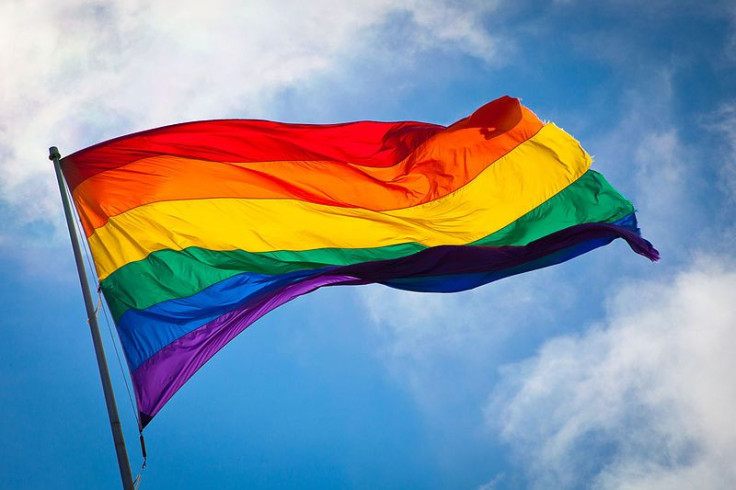
The gay marriage Supreme Court Proposition 8 arguments, which concern a 2008 electoral referendum banning same-sex marriages in California, will begin to be heard by the United States' highest ranking judges on Tuesday. However, the case at hand, "Hollingsworth v. Perry," will not necessarily produce a clean cut nationwide ruling on the issue of gay marriage.
Though the gay marriage Supreme Court arguments are of national interest, the SCOTUS will be specifically dealing with the embattled Proposition 8 in California, which banned gay marriage statewide following the 2008 elections. "Prop 8," as it is called, added a subsection to the California Constitution stating "only marriage between a man and a woman is valid or recognized in California."
Following the passage of the gay marriage ban in the Golden State, the issue drew national interest not seen since the Defense of Marriage Act was passed in 1996 by President William Jefferson Clinton. Nationwide pro-gay marriage protests ensued, notably in many blue states where the cause found widespread public support.
In 2009, Kristin Perry filed a request in Alameda, Calif. For a marriage license for her and her partner Sandra Stier. The motion was rejected on the grounds of the pair being a same-sex couple. Perry later filed suit against the county and a number of state government officials, giving the case its original name, "Perry v. Schwarzenegger." However, Gov. Arnold Schwarzenegger, R-Calif., decided not to defend the lawsuit. This was considered a first by many who were following the issue. Normally, when an individual sues the government over an ordinance or law, the government will assign a solicitor to the case.
However, since the gay marriage ban was enacted through popular vote and not through Sacramento, Schwarzenegger did not necessarily endorse "Prop 8." The case changed plaintiffs following the 2010 election, becoming "Perry v. Brown," noting new Gov. Edmund "Gerry" Brown, D-Calif., who also did not intervene. Gov. Brown said that "Prop 8" violated a person's right to life, liberty, or property as delineated in the 14th Amendment, peculiarly giving the lawsuit no true defendant.
In Brown's place, Dennis Hollingsworth, of the socially conservative website www.protectmarriage.com, decided to intervene as defendants on the states behalf, giving the gay marriage case its current name, "Hollingsworth v. Perry."
In 2010, U.S. Judge Vaughn Walker overturned "Prop 8." After initial appeals, opponents of gay marriage, including Hollingsworth and his co-defendants, appealed the case to the Supreme Court in 2012. Initial arguments in the case landed on the docket for Tuesday.
The arguments are scheduled to begin around 10 a.m., EDT. The Obama administration filed an amicus curae brief, a letter of support, in favor of the plaintiffs and therefore Solicitor General Donald Verrilli, Jr., will offer additional arguments against "Prop 8" before the Supreme Court Tuesday morning.
Thus far, gay marriage is legal in nine states, while 31 others have enacted Constitutional amendments prohibiting gay marriage. That being said, while a sweeping decision from the Supreme Court affecting the entire country is somewhat unlikely, the court may offer a number of rulings outlining where gay marriage is or is not legal.
As CBS News reported, the nine member Supreme Court could rule that gay marriage is constitutionally protected under the 14th Amendment nationwide, basically making recent debate void. On the other hand, the court could offer the opposite ruling, banning gay marriage in the United States, by saying the act has no constitutional protection.
In somewhat of a middle-of-the-road ruling, the Supreme Court could decree that traditional marriage and civil unions are not mutually exclusive. This decision would put the issue's fate in the hands of the states. Those that allow gay marriage would be able to continue marrying same-sex couples, and those with amendments banning the action would be allowed to uphold their individual sanctions.
Lastly, as the case originated in California, the court could rule within that jurisdiction only, allowing the 49 other states to either follow-up with their own litigation or continue with their state laws as they stand. The case could also be dismissed altogether, likely invigorating future debate on both sides of the gay marriage issue.
For most of the 20th Century, the Supreme Court has offered rulings on high profile cases in a partisan fashion. If the court's majority is conservative, the rulings often follow suit and vice versa. However, following the much-anticipated ruling on Obamacare, George W. Bush's recent appointee, Chief Justice John Roberts, Jr., who was seen as one of the conservatives, ruled to uphold the legislation. Roberts' decision was seen to be in line with those of the very liberal side of the court, including Justices Ruth Bader Ginsburg and Sonia Sotomayor.
Therefore, the case's outcome cannot necessarily be predicted solely on the makeup of the court.
© 2025 Latin Times. All rights reserved. Do not reproduce without permission.




